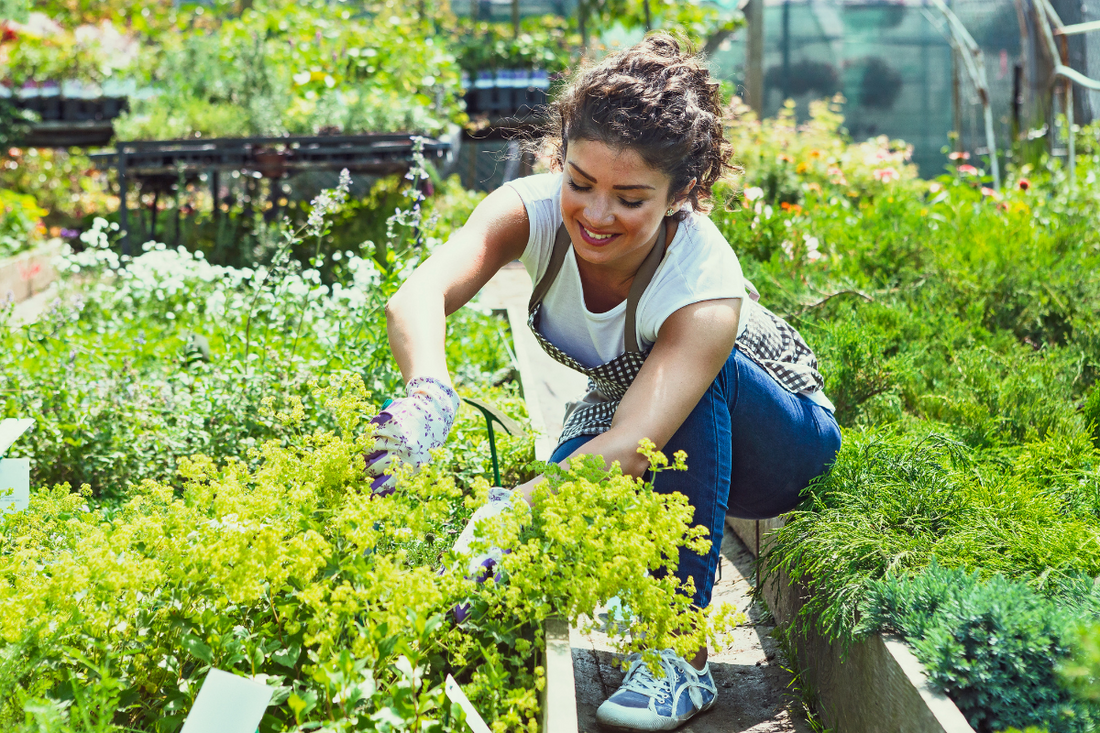Best Compost for a Vegetable Garden
If you’re looking for the best compost for a vegetable garden, you’re already on the path to better harvests. Compost isn’t just dirt with some nutrients, it’s living soil that can help plants grow.
What Makes the Best Compost for a Vegetable Garden?
High-quality compost shares the same signs:
-
● Color & Texture – It should be dark brown and clump together when you squeeze it with your hand.
-
● Moisture & Smell – Slightly damp with an earthy smell. If it smells sour or rotten, it’s not ready.
-
● Maturity – Everything should be fully broken down with no visible food scraps.
-
● pH Level – A range between 6.0 and 7.0 is good for most vegetables.
-
● Nutrients (NPK) – A healthy balance of nitrogen (N), phosphorus (P), potassium (K), with some calcium and magnesium.
-
● Life – Good compost is alive with beneficial microbes, fungi, and sometimes even worms.
Why Compost is Important for Vegetable Gardens
Compost helps your garden in 3 main ways:
1. Physical Benefits
- ● Breaks up heavy clay so roots can spread and get more air.
- ● Helps loose, sandy soil hold water and nutrients for longer.
- ● Reduces soil erosion and keeps garden beds from drying out too fast.
2. Chemical Benefits
- ● Gives plants a steady, long-lasting source of food.
- ● Improves the soil’s ability to store and release nutrients when plants need them.
- ● Keeps soil pH in a range where plants can use nutrients effectively.
3. Biological Benefits
- ● Feeds the living network of tiny organisms (microbes, fungi, and worms) that keep soil fertile.
- ● Creates a healthy soil balance that makes it harder for plant diseases to take hold.
- ● Encourages helpful fungi to connect with plant roots, helping them reach more water and nutrients.
| Compost Type | NPK (approx) | Best Use | Why It’s Good | Watch Out For |
|---|---|---|---|---|
| Homemade Compost | Varies | General use in any bed | You control the ingredients, eco-friendly, free to make | Must balance greens and browns for success |
| Animal Manure Compost | Chicken ~5-4-2; Cow/Horse lower | Heavy feeders like tomatoes, corn, squash | High in nitrogen and phosphorus | Needs to be fully composted to kill germs and weed seeds |
| Mushroom Compost | ~0.7-0.3-0.3 | Improving soil structure and adding minerals | Great for microbes and calcium | Can be high in salts. avoid for young seedlings |
| Vermicompost (Worm Castings) | Nutrients in ready-to-use form | Seed starting, pots, and special crops | Rich in beneficial microbes, fast nutrient delivery | Can be expensive and small-scale |
| Leaf Mold | Low NPK | Mulching and water retention | Holds moisture very well and supports fungi | Low in nutrients. Mix with richer compost |
How to use Compost in the Garden
Tilling (Mixing In)
-
● Best for brand-new beds or very compacted soil.
-
● Mix 1–2 inches of compost into the top 6–8 inches of soil.
Spreading On Top
-
● Best for healthy, established beds.
-
● Spread ½–3 inches of compost on top of the soil and let worms and rain bring it down.
If your soil needs a lot of improvement, mix compost into it the first year. After that, spread compost on top each season to keep it rich and healthy over time.
Make Home Compost Quickly and Easily with LILA

If you want quick, top quality home compost without bad smells or a mess, try using the LILA Composter:
-
● AI-Powered – It automatically adjusts air flow, moisture, and mixing for perfect composting conditions.
-
● Quick Results – Turns scraps into Category A compost in just 7–14 days.
-
● Eco-Friendly – Keeps food out of landfills and turns it into something useful.
-
● Perfect for Indoors – No smell, no pests, fits easily in a kitchen.
Picking the Best Compost for a Vegetable Garden
The best compost, whether you buy it, make it in a pile, or use a LILA Composter, will always be:
-
● Nutrient-rich
-
● Alive with beneficial life
-
● Fully broken down and safe for plants
Your best plan:
-
● Add compost every year, preferably by spreading it on top.
-
● Use special composts (worm castings, manure, mushrooms) when your plants need a boost.
-
● Make your own home compost with LILA so you have a consistent supply.
Ready to start making the best compost vegetable garden mix possible?
Check out the LILA Composter and turn kitchen scraps into garden gold in as little as two weeks.

